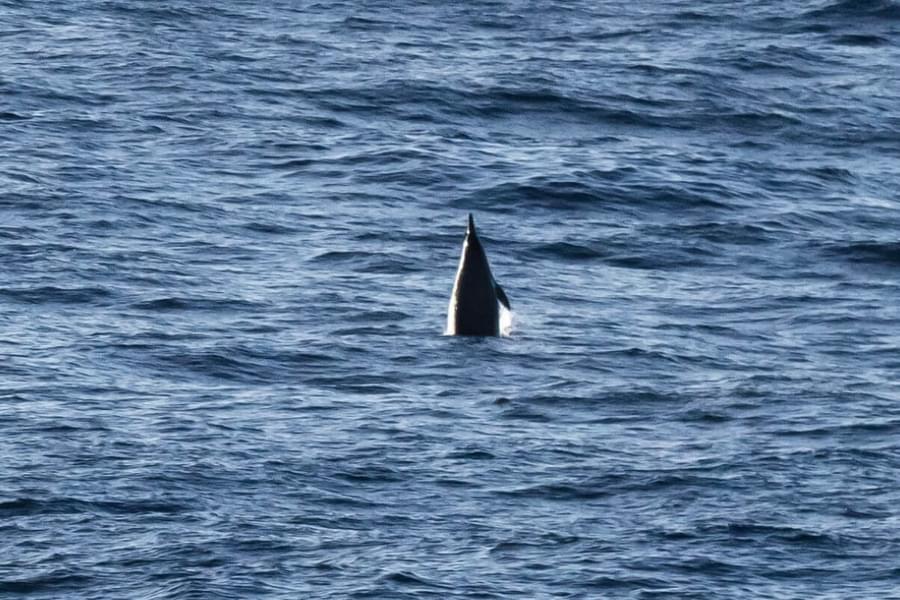Since 2007 teams of dedicated ORCA Marine Mammal Surveyors have been invited on board Saga cruise ships to provide guests with incredible wildlife experiences through delivering presentations, running deck-watches whilst surveying, and generally being on hand to talk about any wildlife seen on the trips. In January the first team of ORCA Marine Mammal Surveyors for our 2024 Saga cruises joined guests on board the Spirit of Discovery for a trip to the Caribbean – and they had some incredible sightings!
The ORCA Team Leader on board was Jan, with Wildlife Officer Terry, and Wildlife Guides Steve and Charlotte. The first day at sea saw little in the way of cetaceans, and the ORCA Team delivered their first presentation of the trip consisting of information about ORCAs work and the wildlife guests may be lucky to see on the way to the Caribbean.
The first cetacean recorded was a Sowerby’s beaked whale, which was seen breaching in front of the ship. These whales along with other species of beaked whales are very rarely seen at sea so this was a great sighting for Saga guests and the ORCA Team. A solitary Risso’s dolphin was also seen, along with small pods of both common and striped dolphins and a distant whale, probably a sperm whale.
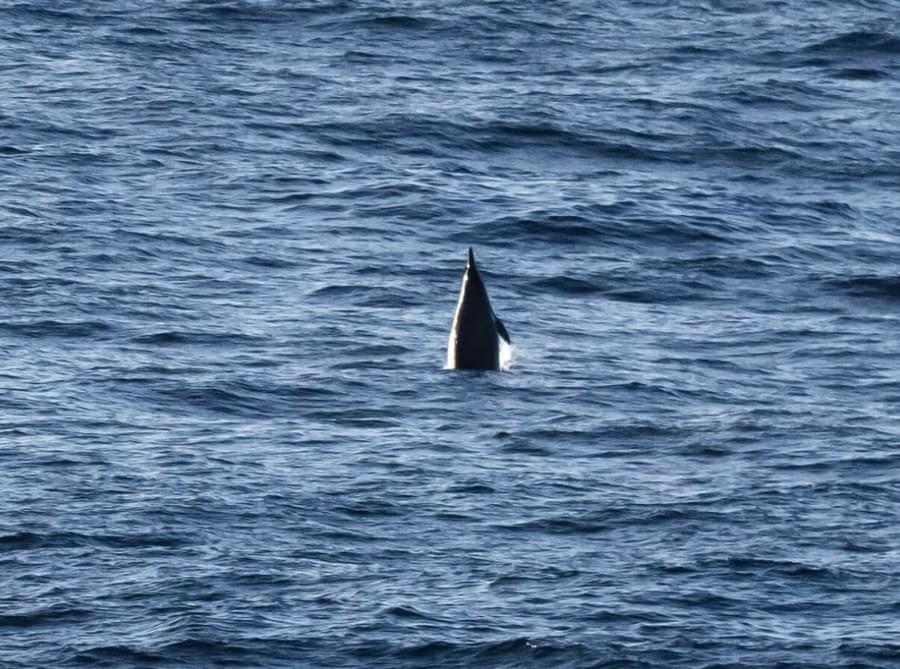
It is sometimes difficult to accurately record the species of cetacean seen due to distance and not seeing much of the animal’s features. In these cases, the whale or dolphin is recorded as an unidentified whale/dolphin so as not to skew the data.
On the morning of the third day, Charlotte was treated to a close view of a female sperm whale and calf surfacing close to the ship, the pair took a deep dive making this quite a fleeting but still very exciting sighting! Not long after, whilst the team were having their breakfast, a lone pilot whale surfaced along the port side of the ship, allowing the ORCA Team and many guests to enjoy this sighting whilst tucking into their breakfast.
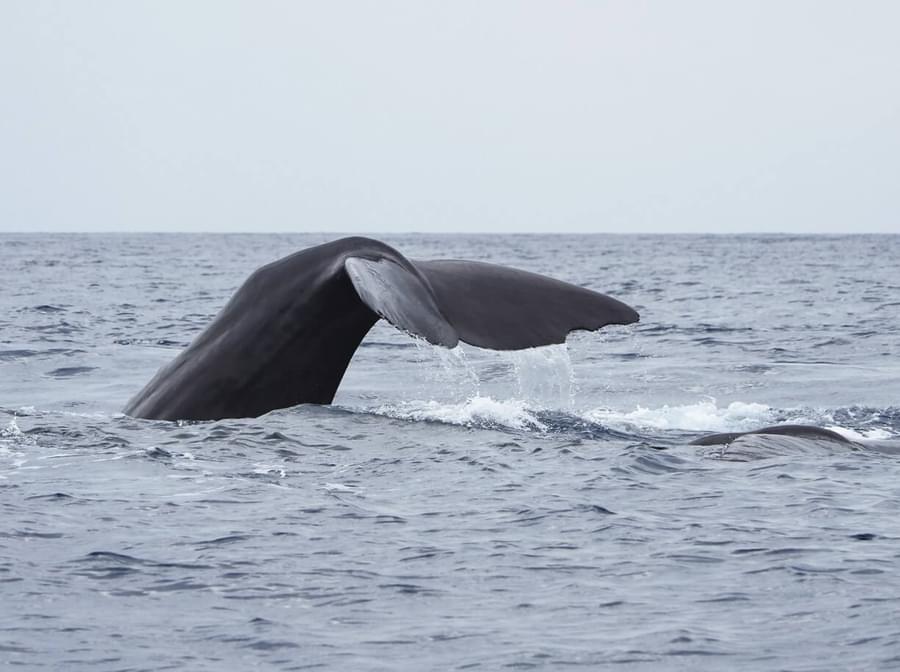
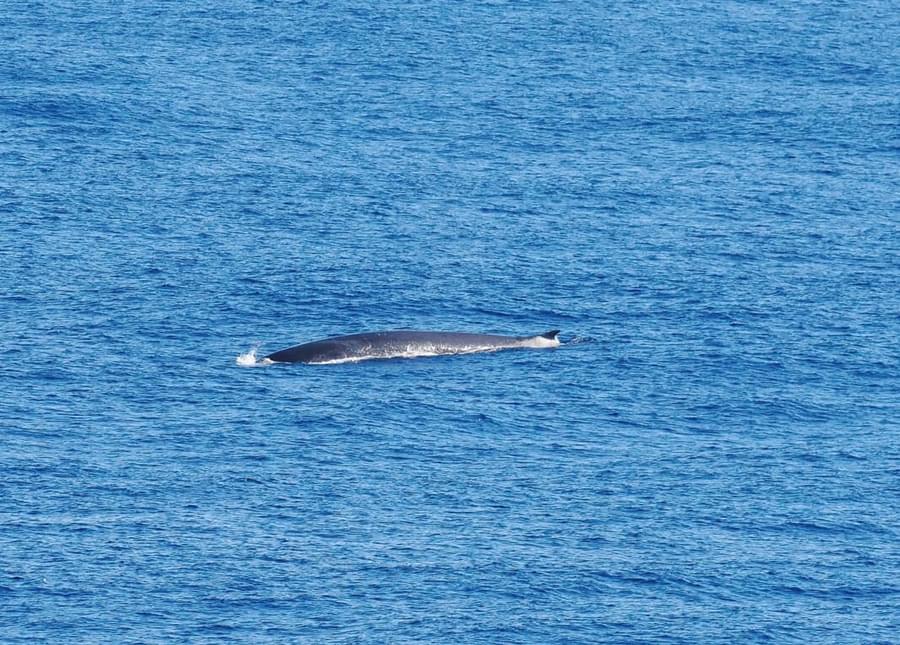
Sightings continued of sperm whales, and fin whales. The team also saw a small pod of common dolphins, and another pod of pilot whales. Continuing to sail west, about a day away from Tenerife, a large plume of dust from the Sahara Desert blew over the Atlantic affecting visibility and the ORCA Teams ability to accurately record whales and dolphins. This often happens in the winter months and is known on the Canaries as La Calima. The ORCA Team and guests continued to survey for cetaceans out on deck when they could and were rewarded with the first Atlantic spotted dolphins of the trip, along with a short-eared owl which everyone was surprised yet delighted to see.
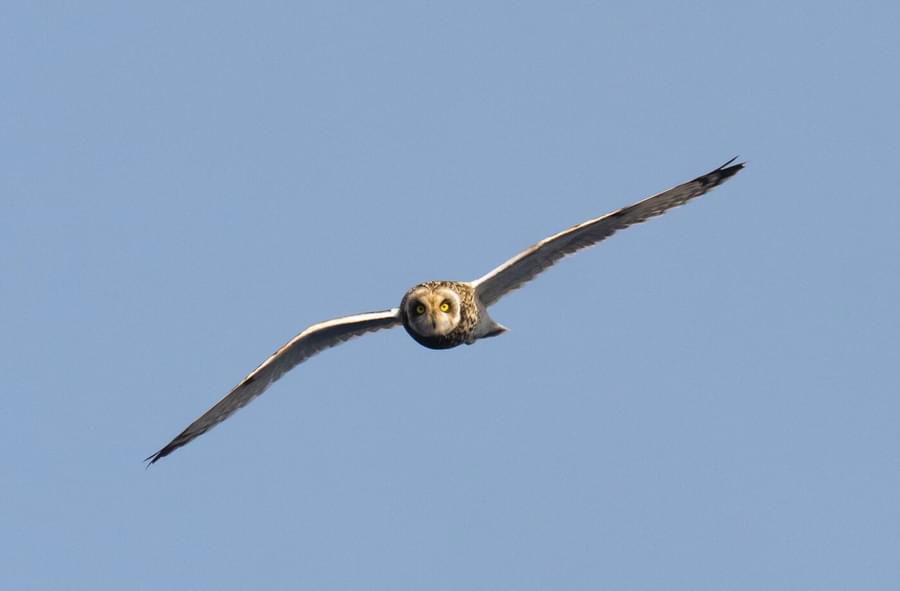
During the following days flying fish and the odd flying squid were recorded, indicating they were getting closer to the Caribbean, warmer seas, and warmer weather. A few cetaceans were seen, including potential sightings of humpback whales, minke whales and a beaked whale.
Upon nearing Grenada, the ORCA Team and guests welcomed views of a variety of seabirds including the red-footed booby, brown booby and masked booby, along with red-billed tropicbirds, magnificent frigatebirds and an Audubon’s shearwater, which delighted Steve.
After a day on land, many guests and the ORCA Team spotted a loggerhead turtle feeding within the port.
Over the next few days the ship was docking daily at many of the Caribbean Islands. Days on land were spent seeking out other wildlife and endemic birds. Steve found several of these, including the Martinique oriole.
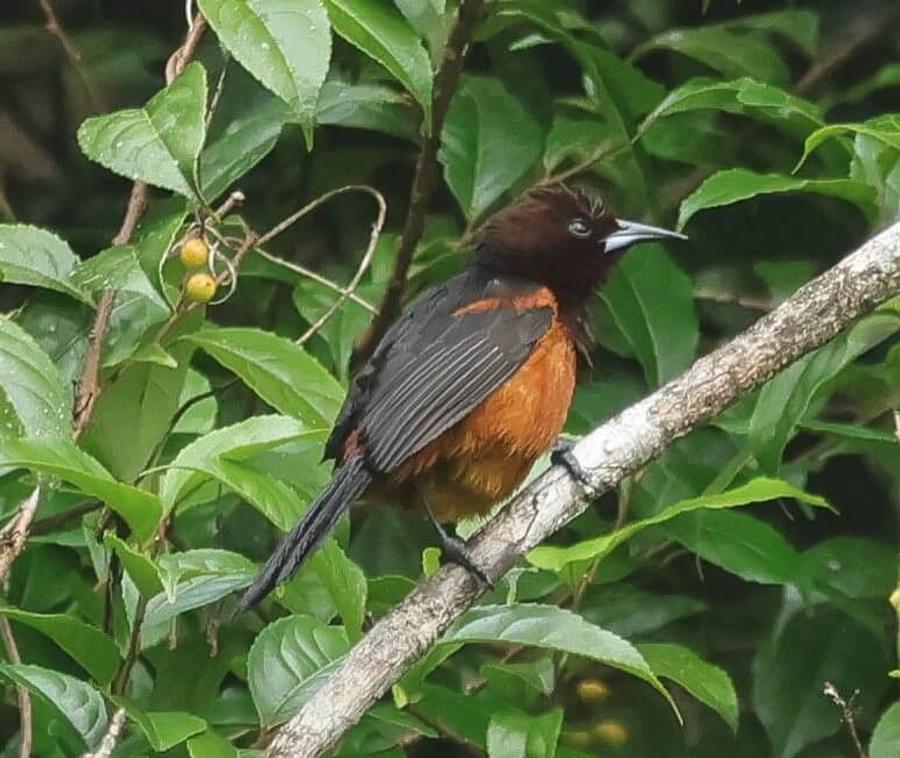
St Lucia welcomed all on board with what was initially thought to be a pod of short-finned pilot whales. It turned out that it was in fact a mixed pod of pilot whales and false killer whales. These whales, which are a species of dolphin, are known to regularly associate with one another, often travelling and feeding together.

Fraser’s dolphins and pantropical spotted dolphins were then seen the following day, putting on a wonderful display for guests and coming in close to the ship on both sides. Guests and the ORCA Team also were lucky to have their first sightings of both green and loggerhead turtles.
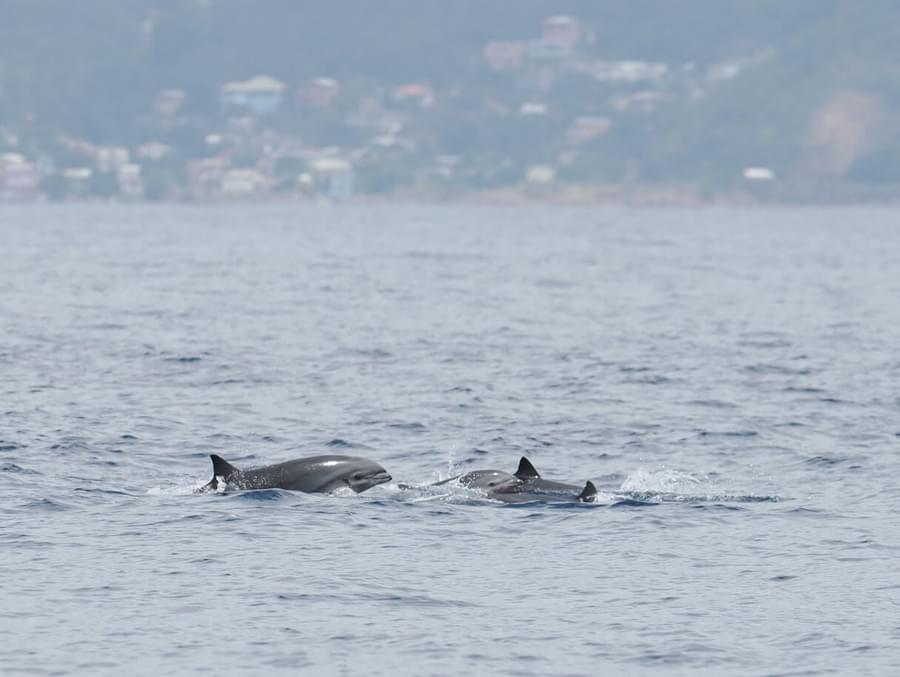
Whilst the ship was anchored for a tender port call in Nevis the ORCA Team provided guests with a stationary deck watch for those not going ashore. Guests had the opportunity to ask the team more about ORCA's work and any other questions about the wildlife encountered so far on the trip.
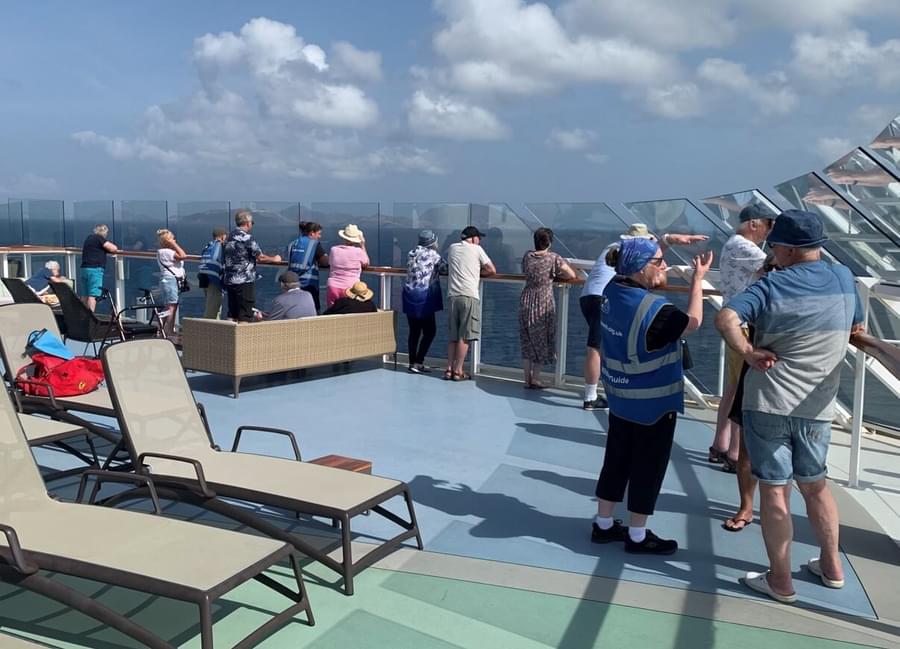
Terry and Steve hosted the first of two wildlife clinics in the Britannia Lounge, giving guests the opportunity to show them their own photos, ask questions and discuss the wildlife seen so far on the cruise whilst Jan and Charlotte continued to collect vital data out on deck.
A couple of days passed before guests and the ORCA Team started to notice tall blows appearing regularly out on the horizon. Fin whales and a group of common dolphins were recorded, as well as a feeding frenzy of Bluefin tuna, turtles and a shark. Bluefin tuna are known to be one of the fastest fish in the sea.
The last port of call was A Coruńa in Spain, where many guests joined the ORCA Team on deck to witness a feeding frenzy of gannets as the ship came into port. Amazingly feeding dolphins and a potential Bryde’s whale were also seen, with another whale (maybe the same one!) being recorded when departing that evening.
On the final sea day of the trip, a pod of eight Risso’s dolphins were seen riding the waves along with a few sightings of common dolphins. Terry presented the final presentation of the trip which included a roundup of all of the wildlife recorded by the team, and Charlotte and Jan hosted a wildlife quiz in the Britannia Lounge.
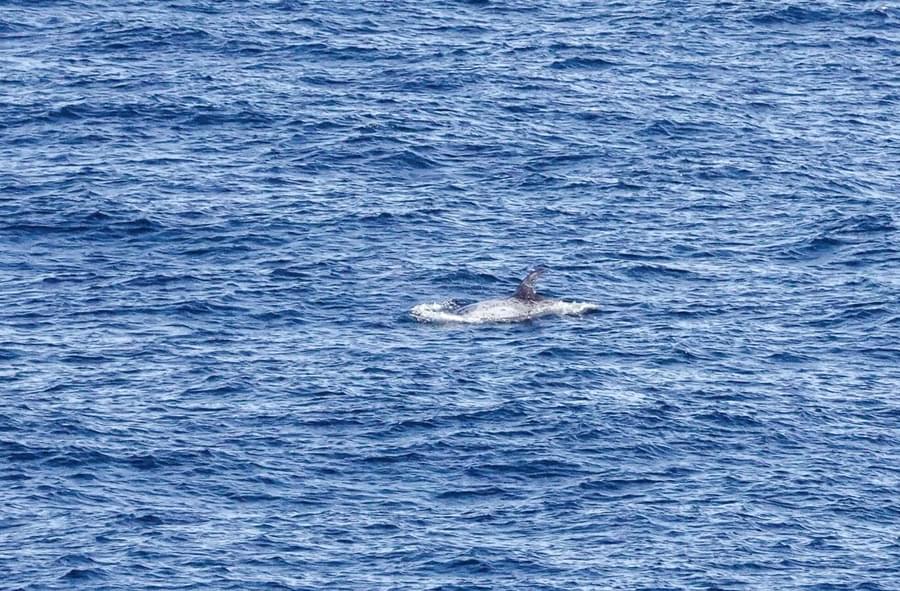
The ORCA team would like to thank Saga, Captain Papic and his crew along with the many guests they spent time with out on deck during this fantastic trip.
Written by Charlotte Bright, member of the ORCA Team on this cruise
Images provided by Terry Carne, Charlotte Bright and Steve Smith
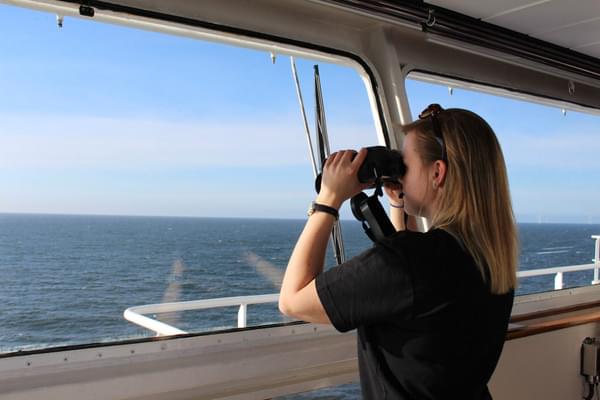
The only way we can protect whales and dolphins is by understanding their distribution, and so monitoring is vital for effective conservation. Donate today to help ORCA continue to identify and study important whale hotspots around the world by visiting www.orca.org.uk/donate

